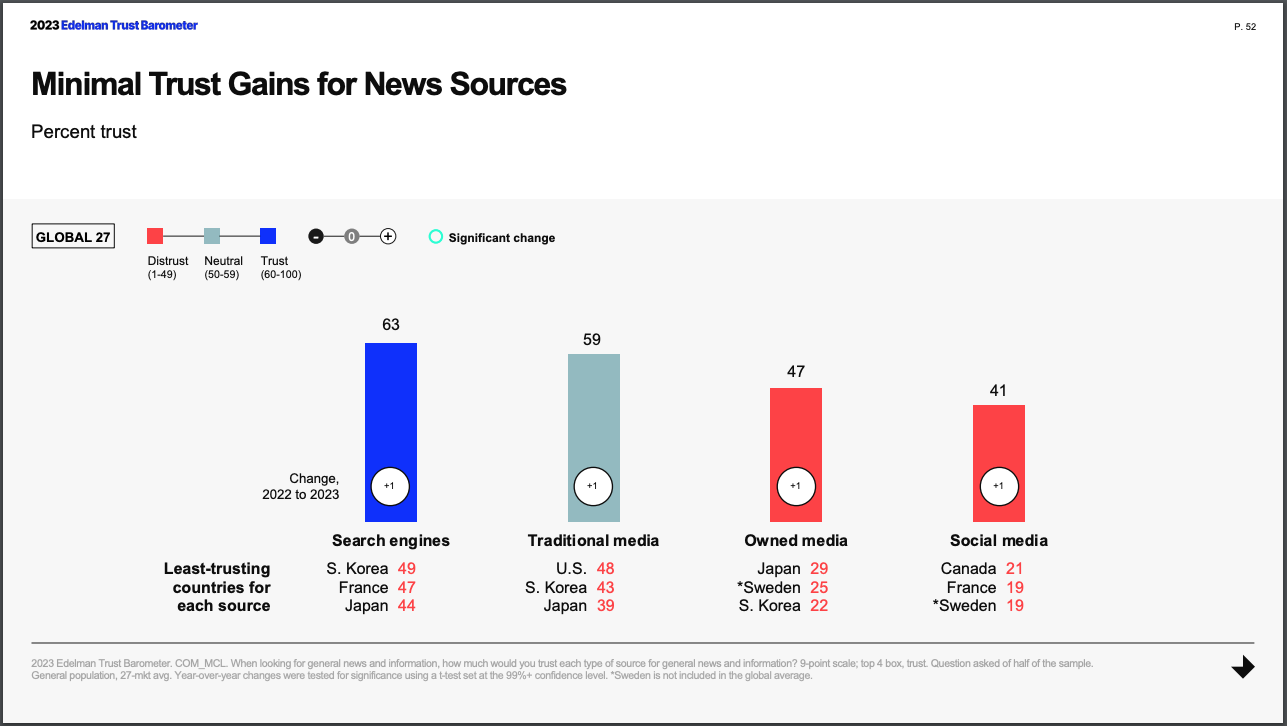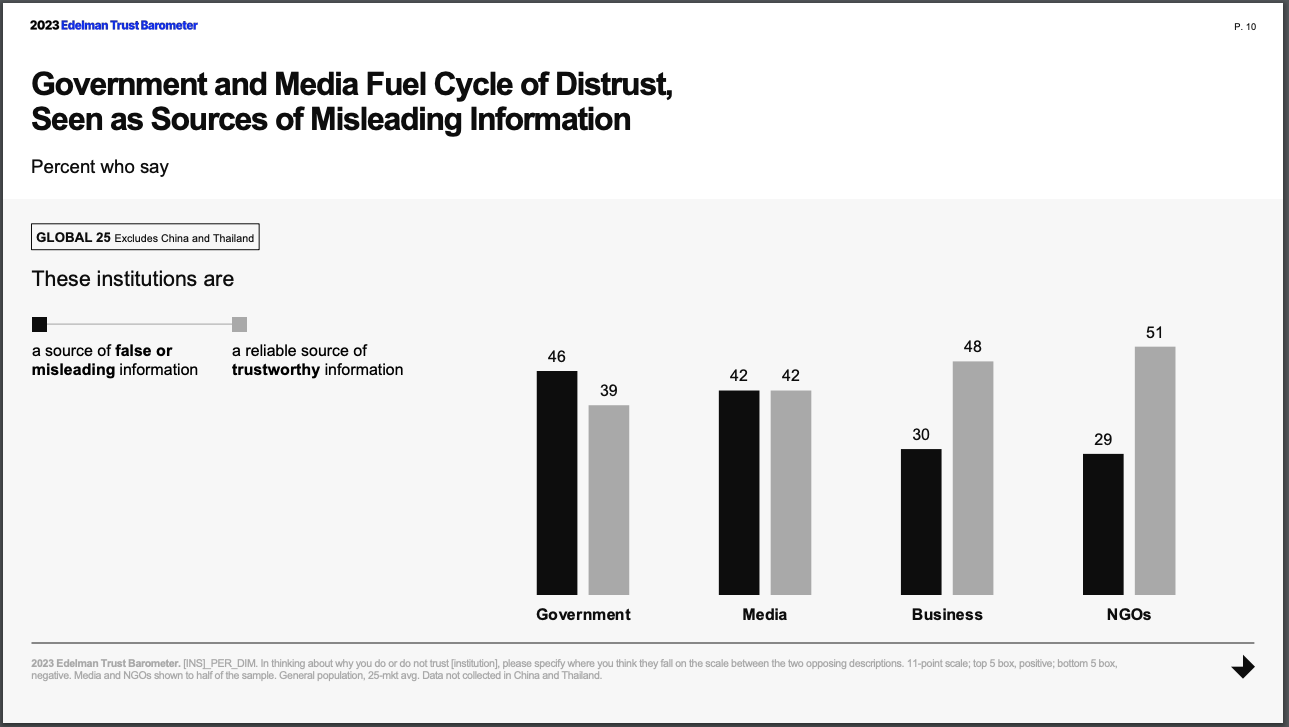
The annual Trust Barometer report by international PR firm Edelman reveals that journalists are amongst the least trusted groups of people and news sources are still widely distrusted.
The 2023 Edelman Trust Barometer, now in its 23rd year of publication, is based on an online survey of 32k respondents across 23 countries. It measures the levels of trust that the general public has toward different institutions.
The news sector is well aware of the low levels of trust its audience has for it. But it is not the only medium entrusted to impart information. The report notes that information providers - such as NGOs, governments and businesses - are all struggling to gain the trust of the masses in a highly polarised digital media ecosystem.
For the news and media industry, things do not look good. A shared media environment - comprising search engines, traditional news outlets, and social media - has given way to echo chambers where information is widely distrusted.
Journalists at the deep end
Journalists are among the least trusted cohorts of people, with around half of the respondents saying they would trust reporters "to do what is right".
Journalists are only in front of government leaders on this criteria. Professionals, ranging from CEOs to scientists, are trusted more (and the latter leads the survey). People put a lot more faith in their friends, coworkers and even local citizens.
Read more: Deep listening and feedback loops: Using the news to tackle polarisation
There is some explanation as to why journalists rank so poorly; 43 per cent of people say journalists are a dividing force that exploits differences, compared to the 35 per cent who say journalists unite people (these stats exclude responses from Thailand and China). Business leaders, NGO leaders and teachers all fare better than journalists here.

Screenshot: 2023 Edelman Trust Barometer
Search engines outrank media organisations
The general public puts more stock in information coming from search engines than traditional or corporate media organisations. Social media still trails the pack, likely owing to its divisiveness and entrenched echo chambers.
Read more: How can newsrooms step back and truly listen to their readers?
Greater perception of polarisation in society can also be linked to greater distrust toward media organisations. In the US, for example, half of Republicans (right wing) think their country is polarised, while just a third of Democrats (left wing) think the same. Meanwhile, a quarter of Republicans trust the media, compared to nearly two thirds of Democrats.

Screenshot: 2023 Edelman Trust Barometer
The UK media industry suffering
Taken as an institution, the media industry is at the bottom of the pack. People think businesses, NGOs and even governments are more trustworthy. None of these institutions has shifted greatly over the last year.
Trust in the media overall has declined in 16 of the 27 countries. In the UK, 27 per cent of people trust the media industry to "do what is right".
Read more: Create a trust strategy for your news organisation
Take all of this with a pinch of salt. At the top end, autocratic China tops the charts, with 79 per cent of citizens thinking its media industry is trustworthy.

Screenshot: 2023 Edelman Trust Barometer
The cycle of distrust
A hard-to-trust media industry is just one element of a larger narrative of deep-seated polarisation. There is also distrust in government, weakening social fabric and community identity, economic pessimism, systemic unfairness and fears for society as a whole.
Read more: How journalists and researchers can work together to solve news industry's problems
The media, as well as the government, is not helpful in depolarisation. The media does a slightly better job, as people in equal parts (42 per cent) think it is a source of false or misleading information, as well as a reliable source of trustworthy information.

Screenshot: 2023 Edelman Trust Barometer
Free daily newsletter
If you like our news and feature articles, you can sign up to receive our free daily (Mon-Fri) email newsletter (mobile friendly).
Related articles
- Six self-care tips for journalists to stay sane during the US election
- News media must change tactics when fighting false information to protect democracy
- Sky News producer and psychotherapist James Scurry: 'Journalists are a decade behind the latest knowledge about mental health'
- University of Central Lancashire pushes for stronger news literacy education in the UK
- #JournalismMatters: Joy of shared truth, sacred bond and democracies’ self-evident values









